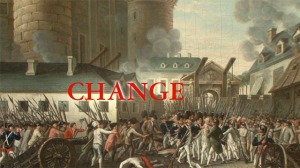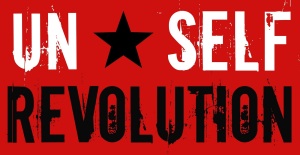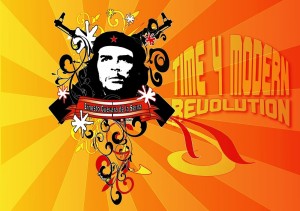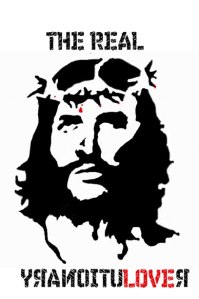In our modern languages, most words have multiple meanings, often depending on the context of the phrase. Most historical events share similar aspects to the words we use within everyday language. Historical events change their shape and significance depending on the perspective of the writer or the artist.
Revolution has represented one such word used throughout modern history. Some writers and historians have also used it to describe momentous events during ancient history. The ancients around the Earth would have agreed that changes in power and governance had similar momentous effects as celestial revolutions. The gods had their struggles, victories and defeats, and so did the temporal powers on Earth, such as empires, kingdoms, ethnic groups, families and heroes.
Our English word for Revolution comes from the Old French word, ‘revolucion,’ referring to the movement of celestial bodies, while the word originally alluded to the Latin, ‘revolvere,’ the actions of ‘turning and rolling back.’ A good example has symbolized the movements or revolutions of the Sun in our solar system within the Milky Way Galaxy, all within our cluster of galaxies, and somewhere within in our section of the Universe.
The Sun has around a 365 day, 24 hours per each day, elliptical revolution around the planet Earth, which creates the diverse regional climate and floral seasons inside of our cyclical years. Our climactic seasons are revolutionary, but they always return and roll back. Winter hits dreadfully, spring opens up, the summer heats up, and the fall-autumn brings in the harvest and new directions. Here we have our cyclical revolutions, which also correspond to one of the six truths of history: all things come into being and then pass away.
Thanks to the modern ideology of Liberalism, some European and Euro-American intellectuals have hijacked the term, ‘revolution.’ This simple term now carries a lot of loaded meanings and significance. Many people in Europe and within the post-colonized zones around the world: the Americas, Africa, Asia and Oceania, now solely use this term with its newer political meanings.
According to the Liberal authorities, the word Revolution applies specifically to political meanings, signifying dramatic changes in the political landscape, or the State, or the particular Government holding power. These pseudo-experts move even deeper into the total terminology.
Revolution also implies a significant change in power relations, not just in the makeup of the State, but also in the wider society and culture. The Liberal junta has told us that ‘the revolution,’ is something akin to a political-economic-cultural super event. The political revolution changes everything from the mentalities of the people to street fashion, from political cataclysms on a specific date to changes in family relations or social morality. Liberal academics have even equated cultural changes throughout human history, as bursting originally from political revolutions or super event changes.
This is false and it is bad history. Unfortunately, the Liberal elites and their ideological followers have won the recent wars of history, i.e. World I and II, and so they have been able to manipulate the historical writing too.
I am also a historian, and I will correct those bumblers in this blog. Revolution is a change, but it is often a faster change than the long changes throughout human history, such as evolutions, and which are often more historically significant. Political revolutions only change the form of government or the face of the State. The tyrannical nature of the State always stays intact and acts with full criminality, revolution or no revolution.
Human history shows both evolutions and cataclysmic revolutions, but a revolution is simply an evolution that bursts forth out in the open. Think on our natural Earth: avalanches, tsunamis, volcanic eruptions and severe earthquakes. As long as we have an Earth, the evolutions and revolutions will continue to turn and roll back around. Such is the cyclical birth, life, growth, decline, death model that all living beings face. So what’s the big deal about revolution?
The ideological subsets of Liberalism, such as Leftists, Progressives-Socialist types, Conservatives-Reactionaries, including the lunatic fringe, Marxist sects, still harp on the word, revolution. All of these ideological gangs enjoy writing about ‘the coming revolution, the decline of the American Empire and the upswing in revolutionary activity, and that a revolution is coming our way.’ Will these ideological fire screamers ever stop proclaiming the imminent second coming of the Great Revolution?
Of course, there have always existed the multiple political flare ups representing riots, rebellions, revolts, skirmishes, hot and cold wars, wars of attrition, global world wars, violent attacks, uprisings, mutinies, insurgencies, coup d’états, overthrows, disorders, protests, demonstrations, boycotts, dissidence, defiance, resistance, countercultures, strikes, sedition, subversion, regime changes, occupations, invasions, sabotage, and seizures of power. As long a the human condition under civilization excretes, these dreadful and pathetic political cycles will never change.
A short review of the putrid annals of world history is in order. Before delving into such a historical mess, as an Anarchist doctor historian, I have noticed that the whole Revolution cult has been quite Eurocentric. Most of the more notorious Revolutions in modern history deal with European powers or with post-colonized countries, such as Mexico, China, Iran and Bolivia.
In the ancient world of kings, queens and authorities, there were no revolutions, only palace coups, assassinations of tyrants and military downfalls of once powerful empires. Revolution has seemed to exist solely for ‘the strong and powerful European.’ It has had something to do with a successful overthrow of a previous regime, and it has been a part of modernity, or whatever that means in our current world.
The first historical allusion to the term of revolution came out of the Reformation Protestant revolts in Europe during the decade of the 1570s. A French political philosopher and historian, Jean Bodin, described the previous political and economic tumults in Germany as types of prerevolutions.
The Protestant Movement was revolutionary when it began and it did successfully ally with most of the German states in the Holy Roman Empire. However, it soon became part of the European reaction against further ‘revolutionary actions,’ such as repressing peasant revolts, real democratic representation and end to usurious taxation, egalitarian Christian communities, and full religious toleration.
The Protestant authorities became some of the most heinous murderers of dissident women, labeled ‘witches,’ during that historical period. The Protestant Movement was revolutionary in the beginning, but once it seized power within the Holy Roman Empire, the Movement debilitated any revolutionary sentiments permanently, while it helped create new imperial powers, such as Prussia.
In Early Modern Europe, the main European powers also began to label their mercantile capitalist-murderous slave plantation systems as revolutionary. The English described the non-violent overthrow of the Catholic monarch, James II, and the parliament coup d’état of Protestant William of Orange and Mary Stuart as ‘The Glorious Revolution of 1688.’ Meanwhile, white slavers continued to kidnap and sell the poor English, destitute Irish people, and later, thousands of kidnapped Africans, so they could work and die horribly in the American plantations.
On a beautiful August day in 1772, the Swedish king, Gustavus III, simply called in his army, surrounded the parliament building, and the legislative cowards caved in without any violence. Liberals hated him because they said he ended the so-called Age of Liberty in Sweden, yet most Swedes knew that the Age of Liberty was only for the aristocrats and the wealthy bourgeoisie. His act was revolutionary, but did it really change the lives of most Swedes?
And there was the Revolution of Revolutions, the French Revolution. This Revolution was truly revolutionary in the beginning. It did guarantee freedom of religion and association, eliminated feudal privileges and land extortions, pledged citizen equality before the law, created a representative republic, and it abolished African slavery in the colonies. However, like all government hacks, it resorted to anti-subversion campaigns, called the Terror, and it stopped at equality of gender. Eventually, this Revolution would terminate in the Napoleonic Empire, and eventually, a horrid invasion to restore African slavery against the Haitian Revolution of 1791.
And there’s the American Revolution. The revolutionary Constitution of 1789 still stands today, yet the federal government and most state and municipal governments simply ignore it, while corrupt judges write precedents that twist its meanings in order to further government power.
Mexico had an official Revolution starting in 1910 with Madero’s election campaign. If a historian would compare Mexico 1910 with only a hundred years later – Mexico 2010, then the descent of Mexico into absolute horror is plan to see. Bolivia also had a revolution in 1952, called the ‘National Revolution.’ Yet, in the 1970s-90s, a succession of right-wing military dictatorships destroyed the country all over again. Some Peruvians describe the coup d’état of the Christian Socialist, military general, Alvarado, as a type of Revolution in 1968. There are also the various Argentine revolutions: San Martin and 1810, the Peron-Evita regime in Argentina during the 1940s, the recent conflagrations in 2001.
Later in Latin American history there is the Cuban Revolution of 1959, and the Nicaraguan Revolution of 1979. Almost all the post-colonized countries of Latin American have experienced some types of revolutions. Revolutionary changes, yes, yet has real freedom been able to flourish?
World history has two Chinese revolutions: the Nationalist of 1911 and the Communist of 1949. Russia also had two revolutions, 1905 and the Bolshevik coup d’état of 1917. Royal Thailand had a revolution in 1932 – yet kept the royalty. Ireland has had various revolutions against its same mortal enemy throughout history in 1641, 1798, 1848, 1867, 1916 and 1969.
France has also had its various revolutions: 1789, 1830, 1848, 1871 and 1968. The Spanish military revolt in Africa, in political alliance with the Carlists and the Fascist Falange, referred to its rebellion as the ‘Nationalist Revolution’ versus ‘The Spanish Revolution,’ proclaimed by Leftists, Socialists, Anarchists and Marxist Revolutionists in the 1930s.
How many hundreds of recent revolutions have taken place in decolonized Africa and Asia?
How many of them died in their bile and blood, and how many were successful in seizing the state – and now the most important question of all – how many actually changed the lives of the poor and the suffering, often in whose the name the revolutionists had originally fought for?
What are the actual differences between a revolution and a civil war, or a revolution and an armed rebellion, or even a left-wing revolution and a right-wing revolution?
First, we Anarchists need to get rid of the cult of the Revolution, which we have infected ourselves through associating with Leftists. Our Modern Revolutions are not real revolutions at all. A change in the makeup of the state is not a revolution; it is simply a state changeover. A revolution is a quick change, turn, movement, or circle that returns to some previous stasis of power. In the case of the state, it follows The Who song, ‘Won’t Get Fooled Again: meet the new boss, same as the old boss..’
The new state might have started out as guerrilla revolutionaries in the mountainous forests, but all states, in the end, share that common and continual war against their own subjects or citizens once they have seized power. They must institute some form of social control in order to maintain political legitimacy and continue to hold their sacred power.
The Marxist vanguardist party deception of ‘the masses’ is a blatant lie too. Most subject and citizen people don’t care about the revolution. They only want to survive and see their families survive, which in itself is a noble calling. Only powerful minorities make a state changeover. These powerful minorities often come from some faction within the same elites that they wanted to overthrow in the first place. Why do they want to overthrow their fellow elites? Because throughout world history, certain elite factions have often declared war against other elite factions. The revolutionary elites are the usually ones at the loser end.
There are true revolutionary actions, such as standing up to the boss or any government thug. These are revolutionary, and there are many ways to do it, such as Cop Watching, Squatting city owned abandoned buildings, Giving customers free samples to destroy the bosses’ profits, Boycotts and Disinvestments, and there many other creative strategies found in the annals of resistance history.
Finally, there will never exist any future revolutionary utopia. Nothing will ever change through any state revolution or any state turnover. The only true, ultimate revolutionary action will have the human race kill each other off and die out like the dinosaurs. Just look at history for your answers.
I must also admit that there will never be any true Anarchist free society in the future. There were Anarchistic societies in world history, such as the Bedouin warriors of Islamic world culture, some of the ancient Celt and German warrior nations on the European peninsula, the ancient Berber warrior nations in the mountains of North Africa, the Aboriginal cultures of Oceania, the warrior Malay cultures living within the forests of the Kalimantan peninsula, the Bushmen and Hottentots in southern Africa, the Mongol-Turkic warrior people of pre-empire days, and the warrior-hunter Native nations in the western hemisphere.
Unfortunately for our Native warriors, the all-powerful state-empire, exterminated and mutated their souls transforming them into reservation-captive nations. Any attempt at recreating such free cultures will result in another terror of previous extermination campaigns. We cannot fight the imperial state in open combat and hope to win. We will all lose horribly.
We are also conditioned against resistance due to the ubiquitous culture of technology fetishes and our permanent separation from the Earth. Humanity has permanently lost its dignity. As the Sex Pistols’ ‘God Save the Queen,’ song so eloquently stated, ‘We’re the poison in your human machine. We’re the future, your future – No future for you…’ Johnny Rotten was right.
There was no revolution, there is no revolution, and there will be no revolution. There is simply change, whether it erupts violently, or it forms gradually. Human culture changes throughout the long and brutal reign of time, history and certain death. This is what we have waiting for us in our future.
As Anarchists, what we could strive for instead is revolutionary autonomous action. This means standing on our honor like the knights of old. We can further resist all injustices, while using creative methods of resistance. Ultimately, we can embrace the courage inside of all of us to fight with whatever weapons available – until our deaths – and against all powers and authorities, whether revolutionary or not.









